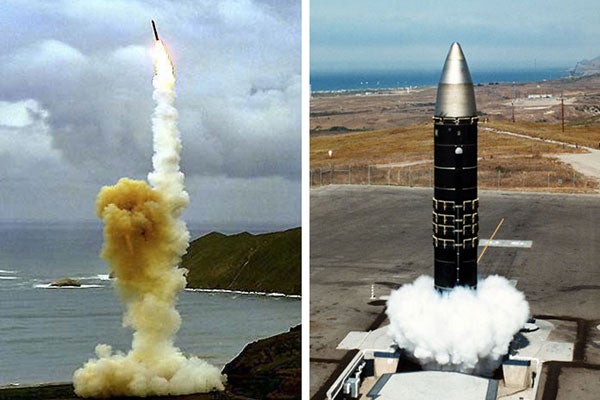Former Senator Chuck Hagel’s (R–NE) responses regarding his stance on the future of the U.S. nuclear deterrent were misleading.
Hagel stated during his confirmation hearing yesterday that his position has never been “unilateral disarmament ever, never.” He said that he doesn’t agree with “any recommendation that would unilaterally take any action to further reduce our nuclear warheads and our capability. But again, that’s not what the [Global Zero U.S. Nuclear Policy Commission] report said. But I do not agree with that. Every—every option that we must look at, every action we must take to reduce warheads or anything should be bilateral. It should be verifiable. It should be negotiated.”
This is inconsistent with a position listed in the Global Zero report—which Hagel co-authored—which says that the reductions it proposes can be carried out “in unison by the United States and Russia through reciprocal presidential directives, negotiated in another round of bilateral arms reduction talks, or implemented unilaterally.”
In response to Senator Deb Fischer’s (R–NE) question whether Hagel agrees with the statement that the report calls for all U.S. tactical nuclear weapons to be eliminated, Hagel said, “Senator, I don’t believe it calls for [such a policy].” This is plain wrong. The report says, “All U.S. tactical nuclear weapons would be eliminated over the next ten years.”
The strategic posture advocated in the Global Zero report is dangerous and naïve. The report says that the United States should unilaterally reduce its nuclear arsenal to 900 total warheads, of which 450 would be operationally deployed. Intercontinental-range ballistic missiles would be eliminated altogether. The 450 warheads would be deployed on de-alerted postures so it would take 24–72 hours to regenerate the response forces.
This approach is wrong-headed. It is impossible to de-alert submarine-launched ballistic missiles and preserve their survivability. Some threat scenarios might require the President to respond quickly. Proponents of the Global Zero would be the first ones to argue that re-alerting would exacerbate a potential crisis. De-alerting would deprive U.S. policymakers of options to signal intent and willingness to resolve a crisis before it becomes a disaster.
The U.S. should develop a strategic posture that would deter an attack on its homeland, forward-deployed troops, and allies. Today, when all nuclear weapons states except the U.S. are pursuing nuclear weapons modernization programs, a credible deterrent based on the “protect and defend” strategy requires more nuclear weapons.
Radical suggestions to the contrary, such as policy prescriptions in the Global Zero report, put the security of the country at risk.
